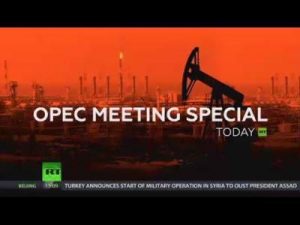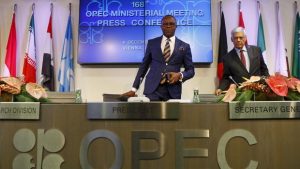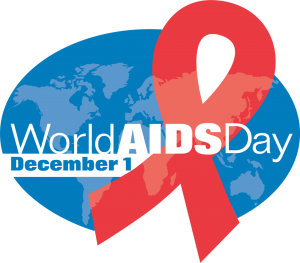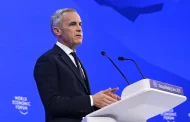
Russian Television visual of the OPEC of yesterday’s OPEC meeting

Nigeria’s Oil Minister, Ibe Kachikwu at a previous OPEC meeting before yesterdays
Acknowledged not to be in the position to even produce up to their quota due to domestic problems, Nigeria and Libya, two otherwise key members of the Organisation of Petroleum Exporting Countries, (OPEC) were exempted from quota cuts at the 171th meeting of the organisation where the battle was fought out to keep oil supply that doesn’t create a glut as far as price is concerned. Nigeria currently produces just about 1. 5million barrels daily while Libya is down from its 1.6million barrels around this time last year to slightly above 200, 000 barrels daily output. What OPEC has done is thus not a concession to these countries but a recognition that they have already been forced by domestic circumstances to cut. While that of Libya is the war in that country, Nigeria’s circumstances are its Niger Delta insurgency, bunkering and dilapidated infrastructure, all three combining to constrain Nigeria’s capacity to hit or hover around a daily production of 4 million barrels, the same level Iraq and Iran are today.
Deep into a recession already, substantially dependent on oil revenue and at nearly 200 million in population, this presents a frightening scenario for Nigeria. Nigeria needs more than OPEC’s exemption, given even OPEC’s own increasingly tenuous control of the global market. Of the three most dominant producers – the United States of America, Russia and Saudi Arabia, only Saudi Arabia is an OPEC member. Although Russia has, grudgingly accepted production cuts, the world is already where the International Energy Agency, (IEA) forecasted in 2012 it would be in 2020, energy wise. As most aptly represented by The Wall Street Journal under the title “IEA Says US To Top Saudis In Oil Output”, (November 13th, 2012), “By around 2020, the United States is projected to become the largest global oil producer… The result is a continued fall in US oil imports … to the extent that North America becomes a net exporter around 2030”. The paper noted the contrast between this and the 2011 forecast by IEA in which it gave the top position to either Russia or Saudi Arabia.
All these have been overtaken. Four full years before 2020, the United States has already overshot Russia by more than a million barrels in daily output and much more than that in the case of Saudi Arabia. The US is ahead of just about every other country into the number one spot, reaping the benefits of its deliberate policy of keeping global oil prices high so that they could develop oil in America. Tomorrow, some backwater energy or development economist will tell us in Nigeria that the state has no business in business. The American State had so much oversight business in business that the joke among energy students that there will be no time when the US would not be the number one oil importer in the world given its infatuation with being number one in everything is now completely invalidated. It still imports but not to the extent of buying anything from a country such as Nigeria anymore, partly because it is self-sufficient and partly because it thinks Nigeria has over indulged China.
In the age of Trump, not only is the US no longer buying Nigeria’s oil, the US will basically appropriate whatever is still left of Nigeria’s share of the European oil market, both in gas and oil. Very soon, the issue in European energy market would not be much about any other oil countries but which between the US and Russia would predominate in that market. Cheaper cost of producing a barrel as well as longer experience of that market would tend to favour Russia but it could be a tight thing, with many non-oil variables coming in.
In Asia, Nigeria’s oil doesn’t face a US-Russia competition but it faces Saudi Arabia whose advantage of cheaper production cost and strength of reserve enables it to undercut Nigeria in India and China. The African market which could have been Nigeria’s because of the cheaper transportation and the spirit of brotherhood in Nigerian foreign policy towards Africa is, however, challenged by Nigeria’s lack of refining capacity and export to those countries, many of which go to the American market. Even if government overcomes its confusion about the business model and cabalistic control of the oil, it takes time to build refineries to be able to consolidate this market in relation to getting out of the current recession. Meanwhile, existing infrastructures in the oil industry are too worn out to be able to sustain raising the production level quickly and sufficiently to respond to the recession. So, threatened at home by insurgent attacks on oil facilities and bunkering on the one hand and outside by dwindling share of the market on the other, Nigeria is akin to being between the deep blue sea and the devil. And there are fewer and fewer options.
Ibe Kachikwu, Nigeria’s Minister of State for Oil, has a rather optimistic disposition to all these. Kachikwu is hoping that oil prices would rise upwards of $60 dollars per barrel in the aftermath of the OPEC decision. The implication is that Nigeria stands to realise more money soon even at its current production level which, according to him, would even to 2.2 million barrels soon. It is either his oil background explains his optimism or he is involved in governmentality. Otherwise, the question would be how could Nigeria’s current market share, the surplus of oil all over the world and the great power factor support his optimism. And if his optimism is founded, hen why is he also advocating diversification of the economy as the way out?
Secondly, why does he hing that on “conducive investment climate in the oil and gas industry that would attract more investment”. Already, Nigeria is consensually the most advanced oil industry in Africa. The Nigerian oil industry is already considered the most investor friendly, what without much fear of nationalisation or lack of domestic expertise or any doubts about the rising size of the domestic market. This contrasts it with nationalism in the Middle East and left radicalism in Latin America. With fuel subsidy completely off, watchers of Nigerian energy space wonder what conducive investment climate Kachikwu might have in mind if not governmentality for the much feared break – up of Nigeria by the most definitive investors. Western scholars and writers such as Robert Kaplan and Thomas Barnett are saying this openly, though broadly for much of Africa. Other specific scholars who work for the big guys in the world of investment speak of impending state collapse. Interestingly, one of their best sources of evidence for such claims is what loud mouthed discussants of Nigeria say. Mistaking freedom of expression for deriding the country perpetually and invoking restructuring, true federalism, secession and so on, they provide the discursive data for the fear that inform much of the distant risk assessment of the country. In other words, Nigeria is an excellent case study of a nation without nationalists or where the dedicated nationalists have been overwhelmed.
This, it is argued, is why a weak discourse of diversification has taken hold. Those who expected a cross road such as Nigeria is in now to engineer the Nigerian elite to settle accounts with the masses are in for a huge disappointment. Instead of an elite consensus towards a new beginning that weans the elite from the spoilt child petro dollar mentality in favour of thorough creative re-engagement with development, people are only hearing of conducive atmosphere for foreign investment. The wonder is how this intellectual and ideological stasis could be the case at a time the only economy capable of autonomous intervention globally is a state coordinated development strategy – China. What a long way from Eldorado!



























